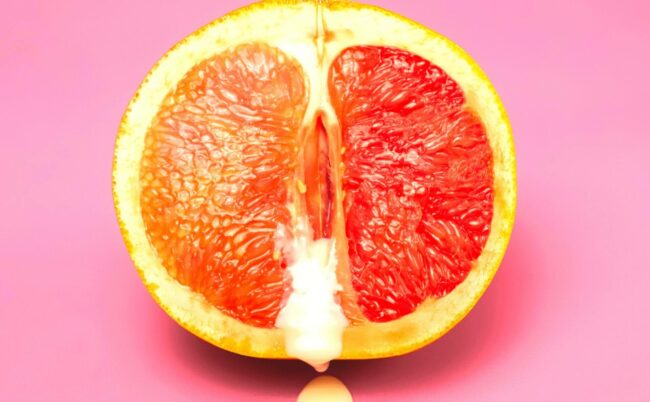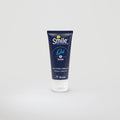Does it itch, scratch, burn or sting? You are going through an uncomfortable crisis: it happens and there are solutions to get better. So, what is this due to? What are the treatments? What to do for soothe vulvar itching ?
What can cause vulvar itching?
Just like the pelvic pain, vulvar itching and irritation can have several causes. Very often, it is a question of infectious or dermatological causes.

Infectious causes
THE infections are common and are generally accompanied by abnormal, abundant and/or smelly vaginal discharge. In some cases, they can be transmissible and require a specific treatment, prescribed by a doctor.
Mycosis
It is an infection caused by mushroom. It is very common, and we often know it very well! But be careful: it is frequently wrongly accused of being responsible for all the itching felt in the vulva.
So, to avoid any misdiagnosis and receive the right treatment, confirm with a gynecologist. Please note: using antifungals (creams and ovules treating fungi) in the absence of a mycosis can be very irritating and cause dryness.

Bacterial infection
Of the itching vulvas, accompanied by liquid and smelly discharge can put you on the trail of the presence of bacteria. This is what we then call a vaginosis.
Parasitic infection
One of the characteristic signs is the presence of foamy, airy, greenish or whitish discharge — and sometimes smelly (but not always!). We will therefore mainly look at the color and texture to confirm the parasitic trail.

Vulvar herpes
Most often, it is theherpes simplex type 2. It causes vesicles (small blisters) and sometimes small painful sores on the vulva, but also around (pubic area, folds of the thighs, anus, etc.).
Consult a gynecologist or dermatologist in order to benefit from the prescription of the most appropriate treatment. It's a sexually transmitted infection then, if you suspect herpes: you stop all sexual relations while you receive treatment and obtain advice from a doctor to resume a sexual activity safe.

What must be remembered is that for all these infectious causes, and in a context of abnormal discharge and/or recurrent itching, it is strongly recommended to take a sample to identify the person responsible and get the right treatment. It is always different depending on the type of infection you are experiencing.
Dermatological causes
In the absence of a pathogen (bacteria, fungus, virus, etc.), it is essential to observe the appearance of the vulva. Are there any skin manifestations that could indicate a dermatological pathology? Here are the diseases which could then explain your itching in the vulva.
Vulvar psoriasis
Vulvar psoriasis is a chronic inflammatory disease. It affects the entire body and can therefore also develop directly on the vulva. Vulvar psoriasis results in red patches, in relief and well defined.

Vulvar eczema
Like psoriasis, vulvar eczema can develop on the genitals and train red patches. These are less well defined than those of psoriasis.
Lichen sclerosus
Lichen sclerosus is a autoimmune disease. It remains unknown and therefore misdiagnosed. Antibodies attack your skin and modify the appearance of the vulva.
Lichen sclerosus can cause severe itching and results in blunt reliefs. Sometimes the inner lips shrink and so does the vaginal opening, for example. Also, the mucous membranes can take a pearly appearance, lighter, even white.
In the event of a skin manifestation, consult a dermatologist or gynecologist who will be able to make the diagnosis and prescribe the appropriate treatments.

Latex allergy
This is a special case. If the itching and irritation you experience occurs at following sex with a condom, it may be a latex allergy. And if this is your case, rest assured, you are not alone.
Latex allergy affects around 3% of the population! To avoid itching, simplyexclude contact with latex by adopting latex-free condoms.
When there is no infectious agent or skin sign…
You with itching, burning, unpleasant pain in the vulva, but no abnormal vaginal discharge, nor redness or signs visible to the naked eye? Your vulvar itching can also be a symptom of a vulvodynia !
What is vulvodynia? It is a syndrome of chronic vulvar pain, without observable physical symptoms on the vulva. It is in fact the nervous system that is affected, and which sends signals of pain, itching or burning, without there being any pain stimuli.

It can also manifest itself as tingling, tingling or tightness – and perhaps associated with pain. drought. Its cause is not always identified. To get a diagnosis, you can consult a gynecologist, dermatologist or midwife specialized in vulvar pathologies.
How to treat and soothe itchy vulva?
Now that you see a little more clearly about vulvar itching, you can put in place the good reflexes to relieve and treat these irritations and prevent recurrence.
Consult a healthcare professional
This is theessential step to be sure to have the good diagnosis and therefore the good treatment ! To help you find a caregiver expert in vulvar health, Vulvae provides you with numerous resources and a directory of trusted caregivers.

Consider vulvodynia
When the pain is recurrent and resistant to treatment, it may be vulvodynia. This is why it is important to turn to caregivers who are aware of vulvar pain, who will know how to identify it.
The care will then be multidisciplinary in order to support you physically but also psychologically.
Apply a calming vegetable oil
No more non-specific creams for the vulva. Instead, turn to specific care, as natural as possible and/or towards soothing vegetable oils such as evening primrose, coconut or even sweet almond oil.

Wear cotton underwear
Avoid synthetic materials, which increase perspiration and maceration and therefore worsen irritation. THE cotton is your best ally.
Leave your vulva alone
There is no need to clean it with scented cleaning products which will attack your mucous membranes. Most of the time, clear water is sufficient. If you want to use a cleanser, opt for one intimate gel with physiological pH.
Do not rub your mucous membranes
After showering, gently dab with a clean, dry towel to to avoid irritating the area.
Readjust your health and diet habits
A large number of factors can impact the well-being of your vulva. It is interesting to observe what influences your itching. Vulvar irritations threaten the quality of life and intrude into privacy. The repercussions on your well-being are therefore significant!








